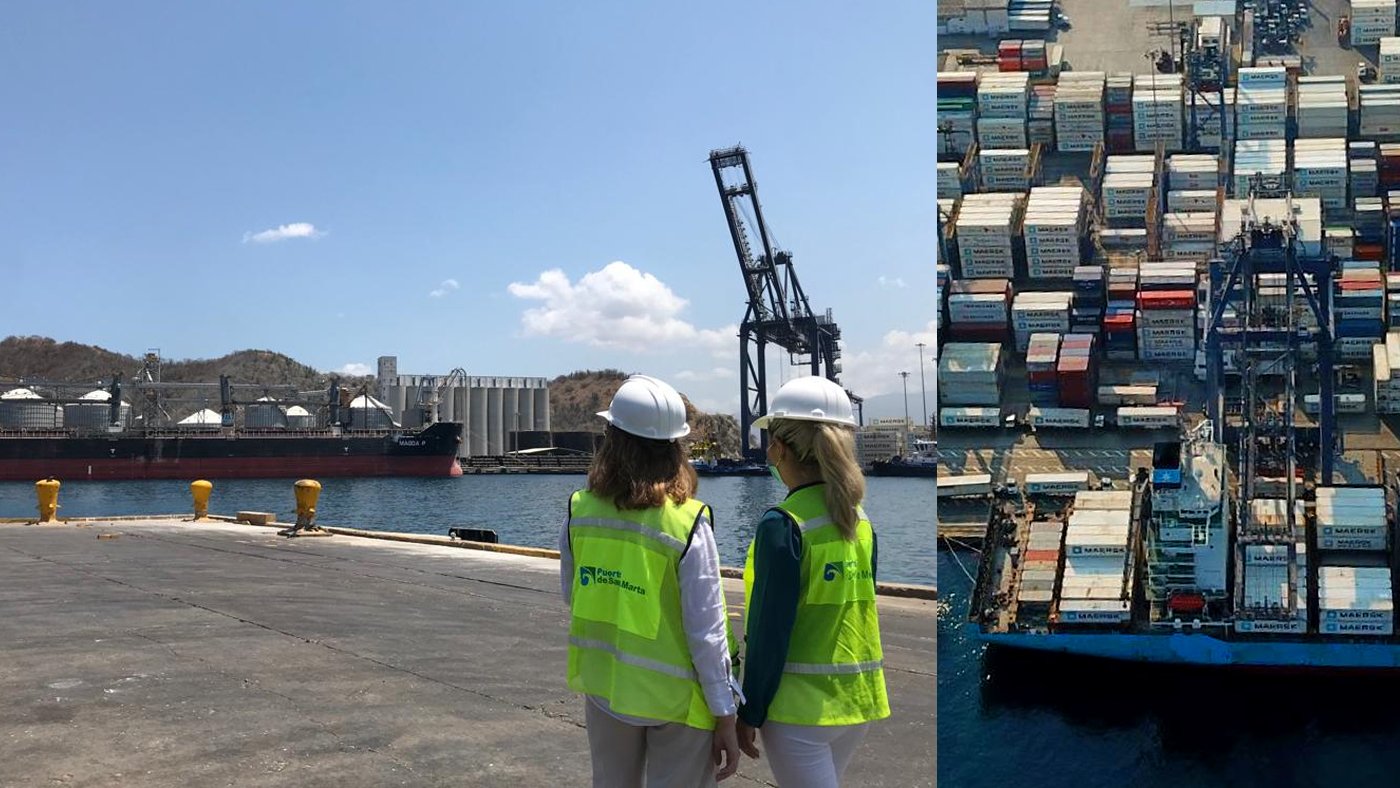PORT PLANNING AND POLICY: TWO FEMININE CONCEPTS
First of all, I would like to thank Red MAMLa for the kind invitation to write a text related to current maritime, port, logistics or gender and diversity issues in the sector. I accepted the invitation, because the feminism preached, as far as I know, by MAMLa, is not an exclusive or revanchist feminism and it does seek the vindication of the role of women and supports their active insertion, in conditions of equality, in the maritime and port sector. And why is such an outcry important? The reason is that men and women complement each other in the differences and the active incorporation of women on equal terms will give the sector a different perspective, generating synergies that will benefit the sector. This is not a utilitarian vision of their role, but rather a Kantian vision related to the categorical imperative that should govern human activities and that are inherently related to the good of the community.
I will write precisely about a couple of feminine concepts, namely: Port Policy and Port Authority.
Two women, Ángela María Orozco, Colombia's Minister of Transportation, and her Vice Minister of Infrastructure, Olga Lucía Ramírez, with their work teams, have studied in depth the evolution of the port sector, its realities and its challenges over the last five decades. This analysis was preliminarily presented to the community in recent days, highlighting the need to work on the following issues:
1.-Organization of port growth. The success of the port management model is reflected in the growth of installed capacity above demand, with private capital as the protagonist, assuming all the risks that have driven this achievement. However, the lack of technical regulations, specifying minimum service levels and infrastructure conditions, is generating symptoms of disorderly growth that, if not addressed, may affect the interests of investors. The structuring of concession contracts, harmonizing them with public policy objectives, is relevant and timely.
2.-Articulation of port development between territorial entities and the national interest. The traditional city-port conflict generated by the dispute over land planning; the use and enjoyment of waterfronts and public property; and the direct and indirect costs and benefits of having national strategic infrastructure in local environments, must be harmonized on the basis of win-win relationships, through infrastructure, economic regulation and technical regulation.
3.-Efficiency of port capacity. The hackneyed but true phrase "The chain is only as strong as its weakest link" applies with precision to supply chains. Efficiency depends not only on the proper functioning of the port hub, but also on the capacity of the different links in the chain, e.g. road connectivity, maritime access channels, last mile, immediate traffic solutions to the port hub, etc.

4.-Regulation. While it is true that often the best regulation is not to intervene directly, it is a priority to have the institutional capacity to analyze information in quality, quantity and timeliness, allowing relevant and timely decisions to be made, in order to maintain the dynamics of port markets, benefiting the actors of national competitiveness, through intelligent intervention in tariffs and some associated costs such as considerations.
5.-Institutional strengthening. An atomization by competencies of the port authority has led to failures in the coordination of actors that have been affecting the development of port activity. The empowerment of a Port Authority, at the request of the Ministry of Transportation, to coordinate and harmonize the entities involved in the sector is a priority.
6.-Environmental sustainability. The country has set very ambitious goals related to a carbon neutral policy, and the transportation sector and consequently the ports must contribute to the fulfillment of these goals.
Although this is the diagnosis of the Colombian situation, the symptoms are common in a development model based on private initiative which, successful as it has been, shows opportunities for improvement to face future challenges, now with the feminine vision that was so needed.
#CronicasMaritimas #IndustriaMaritima #CrecimientoPortuario #EMMSAS #Shipping #Maritimo #Logistico #Portuario #MedioAmbiente #PoliticasPortuarias #Reglamentacion #Convenios #GreenerShipping #GoGreen #ClimateChange #OrgullosamenteMAMLa #ProudlyMAMLa #ElMarNosUne #TheSeaUniteUs